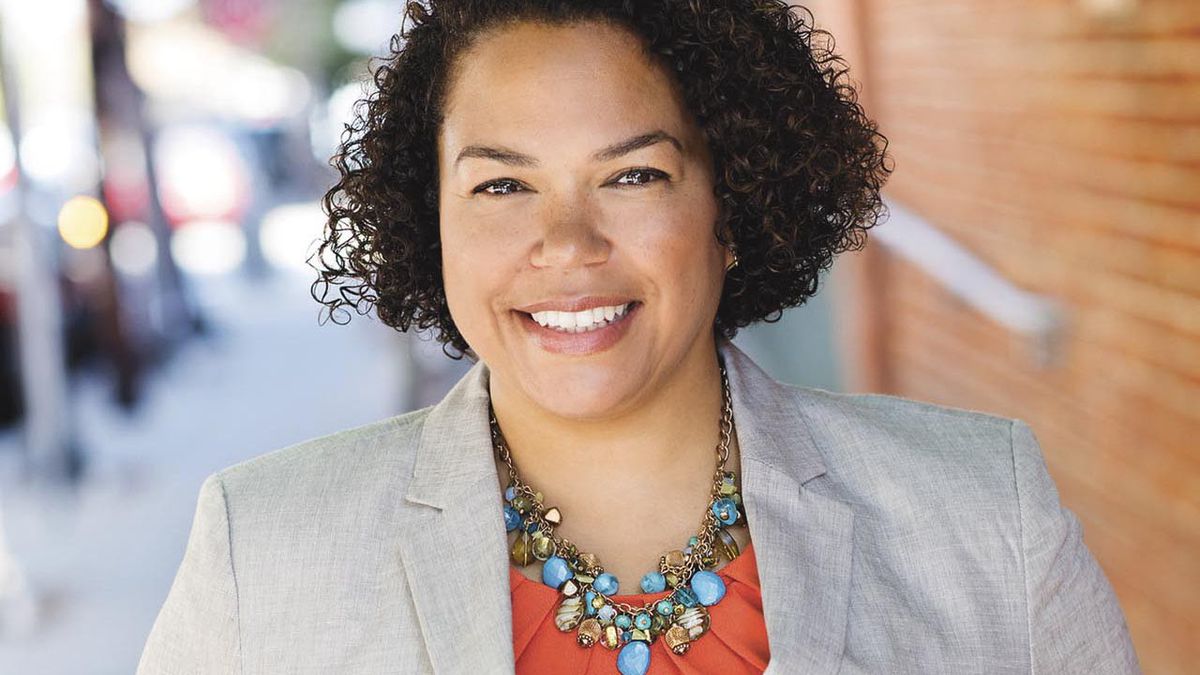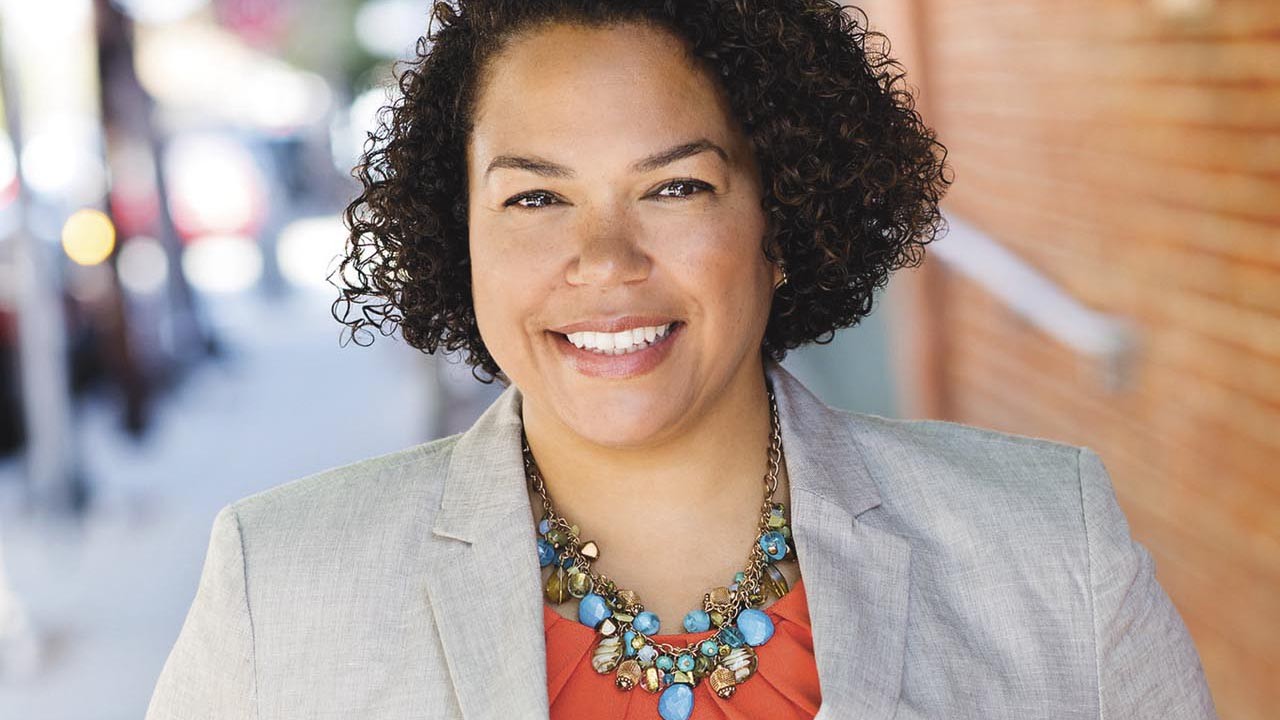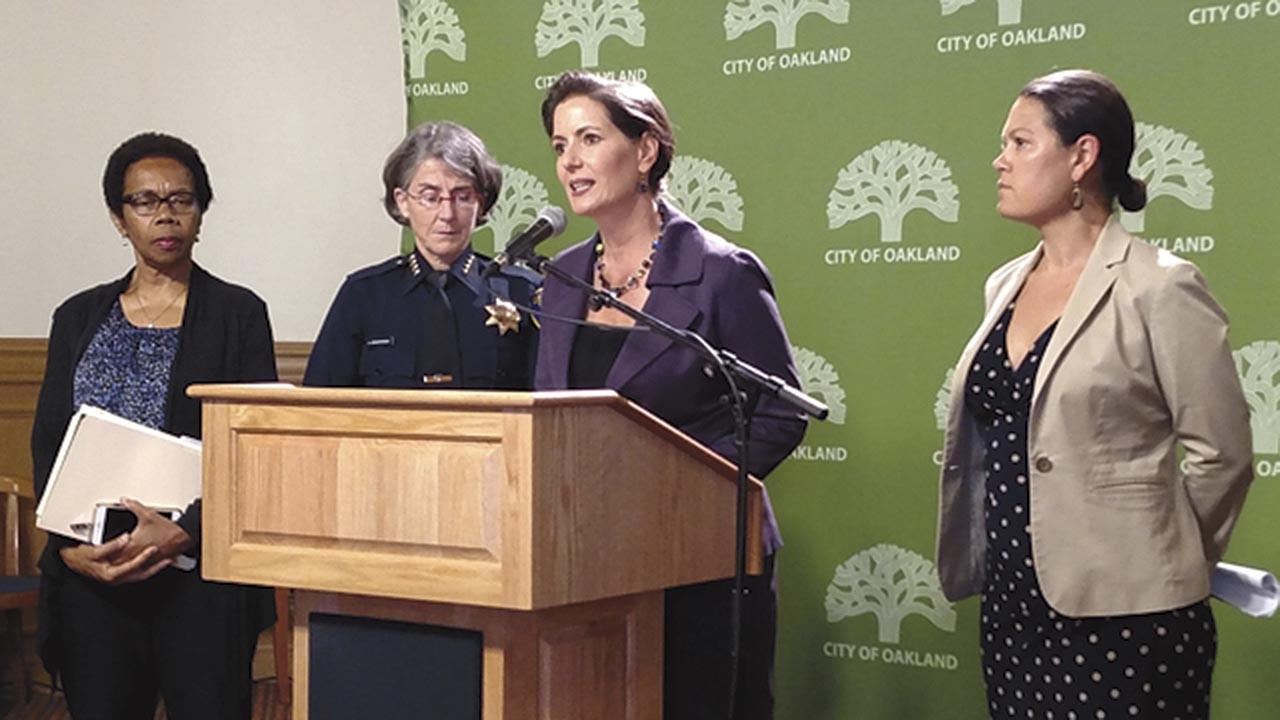Oakland City Council President Rebecca Kaplan continues to raise questions about Oakland Promise, the wide-ranging education initiative created four years ago by Mayor Libby Schaaf. After asking for a city audit of the program two weeks ago, Kaplan has pressed on, saying it is unclear whether individual savings accounts pledged by Oakland Promise for every Oakland student have ever been created.
The program seeks to boost the college participation of Oakland students and create a lasting culture of aspiration for secondary education. Schaaf’s plan to seed academic savings accounts for Oakland students in grades K-12 is the underpinning of the ambitious plan. Last weekend at Children’s Fairyland, Schaaf celebrated the dispersal of $500 savings accounts to 530 infants from low-income families as part of Oakland Promise’s “Brilliant Baby” program. Three other programs within Oakland Promise offer aid to students through scholarships and mentoring through college, including the more widely known Kindergarten-to-college program, which pledges $100 per year in funding for college to every K-12 student. It is this program that Kaplan has been questioning for months.
Earlier this month, Kaplan sent a letter to Oakland City Auditor Courtney Ruby asking for an audit of Oakland Promise. “I would like to request your help clarifying how much funding has been allocated, for what specific purposes and programs, and to whom, if anyone, any funds have actually been distributed. If there is a commitment of future funds, to whom specifically are those funds committed, due by when?” Kaplan wrote. The premise of the audit also included a request to determine whether Oakland Promise employees were improperly gaining free access to City Hall office space and use of telephones.
In both instances, Schaaf’s office struck back at Kaplan, describing her recent criticisms of Oakland Promise as political grandstanding. “Kaplan wants Oakland taxpayers to fund her petty political vendetta masquerading as an audit,” Schaaf’s spokesman Justin Berton said. “And tragically she’s targeting the Oakland Promise — a program started by the City of Oakland to send low-income kids to college with scholarships and mentors. She needs to immediately withdraw this taxpayer funded political score-settling — because it hurts taxpayers and kids.”
In an interview with KPIX last weekend, Schaaf called Kaplan “mean-hearted” for questioning the childhood education program.
Kaplan said Schaaf’s office is obfuscating by not directly answering questions about the savings accounts and taxpayers’ money and, instead, is resorting to personal attacks. “The people of Oakland asked me to find out where their taxpayer funds are, so I asked — which is my job.” Kaplan said. “If the college savings accounts for each student have been set up the way they were promised, then just show us the documents and the inquiry will be over. If they actually didn’t set up the promised accounts, then attacking people who ask the questions is incredibly inappropriate, as the issue really is — where are the college savings accounts? Who is running them?”
Mia Bonta, the new CEO of Oakland Promise, said creating individual savings accounts for each student — specifically for the Kindergarten-to-college program — is not how the program’s accounting works. In addition, Bonta said, relevant documents requested by Oakland residents from the city showing expenditures to Oakland Promise cannot be produced because they don’t yet exist. “The money is sitting in the city’s coffers,” she said. “There has been no transmitting of funds. The money is restricted by the city council.”
More bluntly, she added that the monies have not been transferred because the “students are only in the second grade and obviously have not graduated from high school to college.”
Bonta said she fears that suggestions regarding misappropriations of funds could undermine the work Oakland Promise is planning over the next five years. Oakland has allocated $1.1 million to Oakland Promise since 2015. “It’s sad when you have politicians using their bully pulpit to cut down something without grounding that is good for kids, families, and the community,” Bonta said. “I think it hurts Oakland. Is this about Oakland Promise, or something else?”
Bonta said she reached out to Kaplan several times in recent weeks to better understand her concerns about Oakland Promise, but the council president has not responded.
The program has clearly undergone a bit of a makeover in recent months. Bonta, who is also the president of the Alameda school board and spouse of Assemblymember Rob Bonta, joined Oakland Promise last May and was named CEO in July, replacing David Silver, who joined Schaaf’s office staff. In the meantime, a number of structural changes have taken place. Oakland Promise merged with the East Bay College Fund and obtained its non-profit status. The program also is now overseen by a governing board that adds a layer of accountability, Bonta said.
In background conversations, a number of Oakland City Hall insiders described Oakland Promise’s origin story as highly aspirational, but scattershot in its previous approach, lacking the technical know-how until recently to accomplish the complex goal of administering a cradle-to-career academic program.
Moreover, uncertainty over additional funding for the program exists in the courts. Last November, 62 percent of Oakland voters supported Measure AA, the 30-year, $198 parcel tax that proposed to help partially fund Oakland Promise. But Measure AA failed to secure the two-thirds majority needed for passage — or so most voters and observers believed at the time. Piggy-backing on lawsuits contending that two San Francisco ballot measures only required a simple majority because they were initiated by citizen-driven efforts, Schaaf and proponents of Measure AA now contend that the parcel tax was successfully approved by voters. Last December, the Oakland City Council certified the results of Measure AA, but in April decided not to collect the parcel tax revenues this year while the lawsuit continues in the courts.














